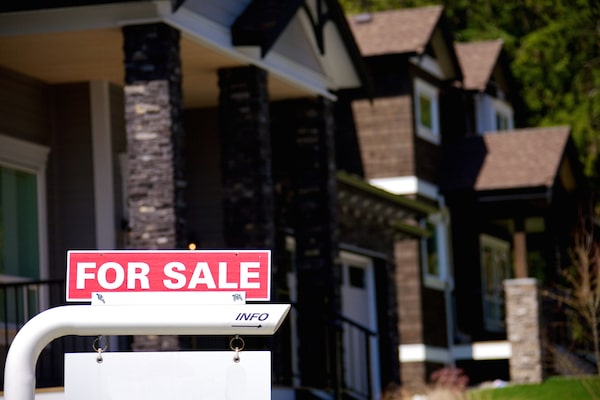
Owning a home can be an important part of growing wealth, but there’s a risk in relying too much on that single asset.Ivan_Sabo/iStockPhoto / Getty Images
Housing values keep rising. According to the Canadian Real Estate Association, the national average price for homes sold this October was up 5.8 per cent year-over-year. Although sales in the Toronto and Vancouver areas skew that figure, home prices were still up by 4.7 per cent nationally when those two markets are excluded.
For financial advisors, determining just what role home ownership plays in their clients’ overall portfolio – a residence, an investment or both – is key.
“Anybody who has owned real estate in the past 30 years will tell you that home ownership is the best investment out there,” says Jason Heath, managing director at Objective Financial Partners Inc. in Markham, Ont.
Residential real estate in Canada somehow missed the 30-per-cent price correction that occurred in the United States following the financial crisis of 2008-09. Rather, prices have been on a steady upward trajectory in Canada, Mr. Heath says.
Does that still make buying a home a great long-term wealth strategy? Kurt Rosentreter, senior financial advisor at Manulife Securities Inc. in Toronto, is a fan of the financial discipline that comes with a mortgage. “It is the most reliable form of forced savings.”
Furthermore, the tax-free capital gains that come with selling a principal residence will always be a huge benefit, he says, calling it “one of the best tax shelters you can invest in in the country.”
Still, Mr. Rosentreter says it can be “dangerous” for people to count on the rising value of their homes as a pillar of their retirement funding.
Why? Some people never see the windfall as they’re reluctant to sell and downsize or relocate to a more inexpensive locale.
And perhaps as a by-product of rising home prices, Mr. Rosentreter has also seen many clients become “top heavy” in real estate, with meagre investment assets, registered retirement savings plans (RRSPs) or wealth beyond their houses.
“People have put more into real estate doing their kitchen than they have put in their RRSP,” he says.
Home ownership does provide non-financial benefits, which are harder to quantify, such as privacy, pride and stability. Yet when it comes to wealth accumulation, there are still cold calculations to make when clients weigh owning versus renting.
Ed Rempel, an independent fee-for-service financial planner in Toronto, says the buy-or-rent question is a tricky one. Advisors need to consider their clients’ financial discipline when making recommendations. Are clients likely to invest the extra cash flow that comes with renting versus paying a mortgage, taxes and the upkeep that come with home ownership? If not, people might do better with the forced savings that comes with owning.
Another option to grow wealth via residential real estate is owning rental properties. Mr. Rosentreter considers buying a rental investment property a solid part of an investment portfolio as a substitute for real estate investment trusts.
“I don’t like condos, but if it is a townhouse near mass transit in a big city, I believe that is reliable income,” he says.
But Mr. Rempel worries that this strategy can pile on even more concentration into the one asset class of residential real estate.
He has clients tell him that they want to diversify because all their money is in stocks. But when he looks at their assets, they have a paid-off $1 million home and just $200,000 in their RRSPs. If clients already have more than 80 per cent of their assets invested in real estate, he questions the wisdom of going to, say, 95 per cent.
Over his career, Mr. Rempel has seen several housing-market cycles, including the market crash in the late 1980s.
“I knew people who were multi-millionaires with a house and four or five rental properties. A few years later, they declared bankruptcy. All the properties went down and were worth less than the mortgage. And all the rents went down, they were negative cash flow. They lost everything. There was no diversification,” he says.
Today, Mr. Rempel tries to share those lessons with clients. “I run into people who have a few rental properties. I say a good thing would be to take the gross value of what you have, and if you are half in stocks and half in real estate, that is somewhat diversified."